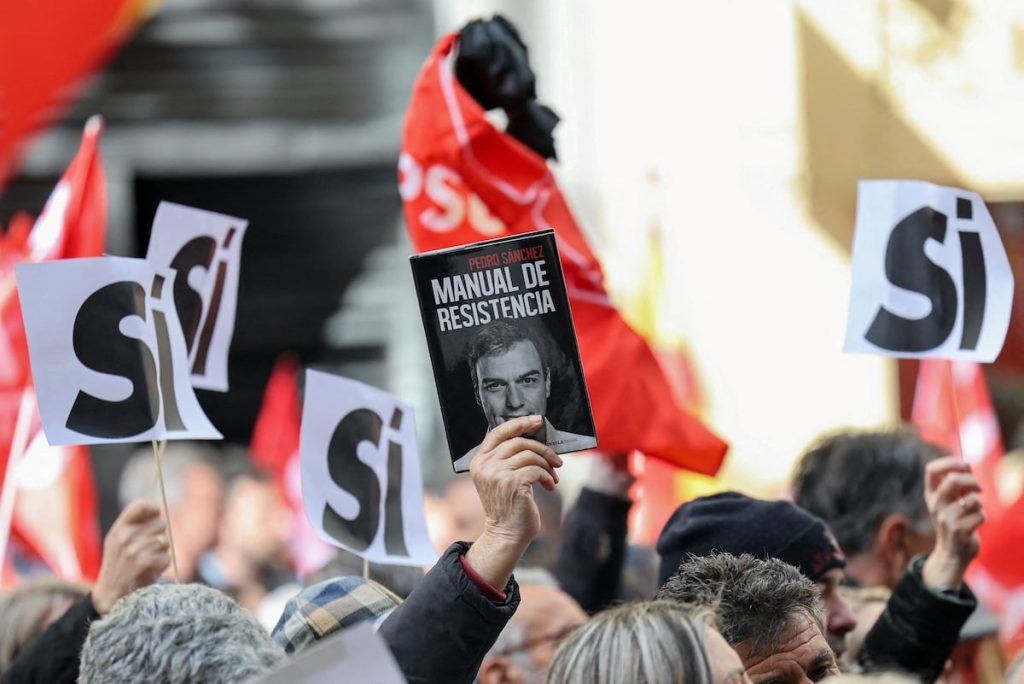Pedro Sánchez has taken five days to consider his continuation as the head of the Government, leading the PSOE to reflect on its current state. Under his leadership, the party has been centered around his hyper leadership since his victory in the primaries in 2017. Not a single organizational move has been made without his approval, and he has been deeply involved in every aspect of the party, despite the demands of his role as president. Any signs of independence within his team have been swiftly dealt with, showcasing his firm determination. Surprisingly, it was Sánchez himself who initiated the succession debate by hinting at stepping aside, catching many by surprise.
While the polls do not show a significant drop in support for the PSOE, the party faces a complex period after the recent losses in regional governments. Currently, the PSOE only holds three regional governments and must establish new leadership in regions where they are not in power. With the uncertainty surrounding the Catalonian elections, the Government of Spain is the main support for the PSOE. Sánchez’s sudden resignation would have caused significant instability within the party and hindered any plans for an organized renewal in the regional federations, except for a few exceptions.
Following the announcement that he will remain in office, Sánchez emphasized his commitment to staying on as a candidate in the upcoming elections during an interview on Cadena SER. By reassuring his electorate and party members, he aims to prevent internal strife that could disrupt party unity. However, the succession debate may prove difficult to control after the five days without Sánchez, given his ten years as leader of the PSOE and in the Government. Sánchez also stated that the party transcends his individual role, suggesting that the PSOE should begin to collectively consider how to ensure the continuity of its political project beyond the leader’s personality and charisma.
The internal discussions within the PSOE reflect a deeper issue within the party, as it grapples with the need for a clear succession plan and a unified vision for the future. The PSOE’s reliance on Sánchez’s leadership has overshadowed the development of new leaders and the party’s ability to adapt to changing political landscapes. Sánchez’s potential departure has highlighted the party’s vulnerability and raised questions about its long-term stability. The PSOE faces a critical moment in its history, where it must redefine its identity and direction to secure its position in Spanish politics.
As the PSOE navigates these challenges, it must address internal divisions and chart a path forward that emphasizes collective leadership and a cohesive political strategy. Sánchez’s decision to stay in office has provided temporary stability, but the underlying issues of succession and party renewal remain unresolved. The PSOE’s ability to weather this period of uncertainty will depend on its ability to unite around a shared vision and cultivate a new generation of leaders that can sustain the party’s relevance in modern Spanish politics. With a renewed focus on building consensus and promoting inclusivity, the PSOE can overcome its current challenges and emerge stronger in the face of evolving political dynamics.















